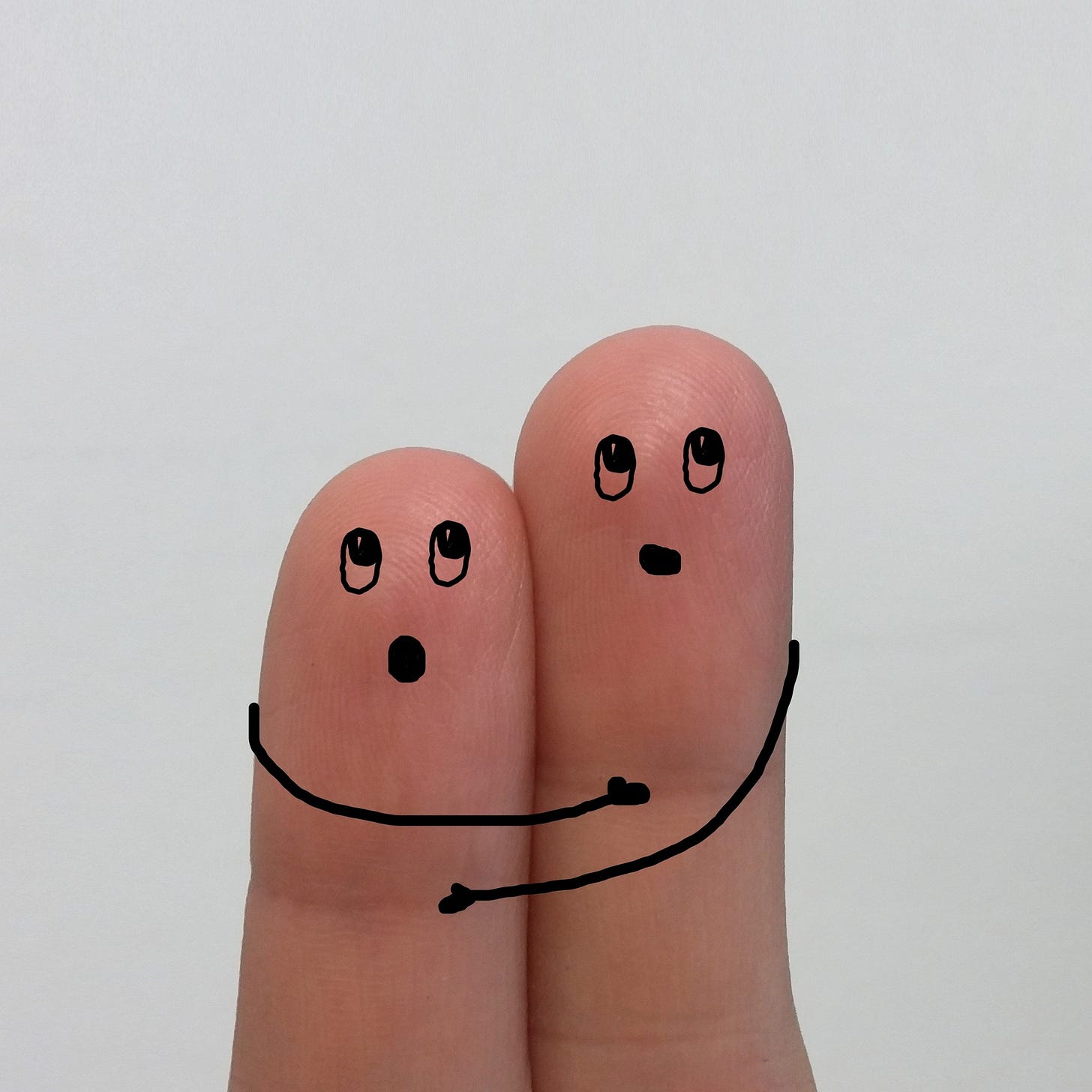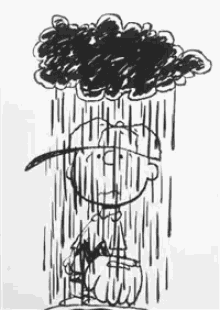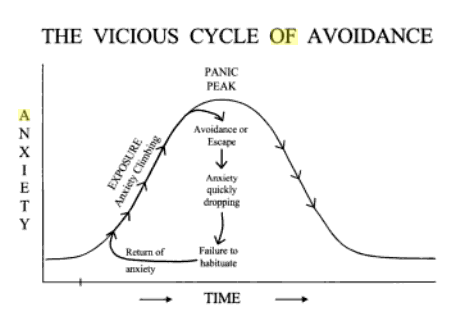Welcome to the next instalment of ‘Permission to feel’.
This week I’m talking about anxiety. Below is a poem that I wrote about mosquitoes. It’s not a direct link to anxiety, granted, but I think it helps to get across that sense of ‘state anxiety’ - you know, when the mosquito is buzzing around the room and you’re on tenterhooks about where it is and when it will come and have a gnaw at you, but you can't track it down. Sometimes a state of anxiety can be dealt with by getting rid of the source of that fear - like squishing the mosquito with a deadly shoe! Oops, spoiler alert…
Whilst anxiety can be a temporary condition that you experience for a finite amount of time, it can also become a ‘trait’, where you have a generalised fear which follows you around like a pervasive black cloud. You know, a bit like:
So what can we do about it then? Well, some of the things that we may do initially are things to alleviate the worry, such as:
Seeking reassurance - ‘Do you really think it will be alright?’
Checking facts - ‘Let me just Google it’.
Information seeking - ‘I’ll just buy these couple of books and binge read them…
Withdrawal from people, groups or places that exacerbate the anxiety - ‘I’m not really up to seeing everyone tonight, go on ahead without me.’
Avoidance - ‘I’ll just let it go to voicemail.’
Procrastination - ‘Should I make a to-do list or Google ways to make the most efficient to-do list or buy an app that will do my to-do list for me… or all 3?’
All of these reactions are understandable ‘flight’ responses. The only problem is, is that the anxiety is residing in your head. So wherever you go, there it is (a bit like that flipping mosquito).
We can look at persistent ‘trait’ anxiety as something that started as a flight response, but has ended up being a freeze response. Partially this is because of our environment; the influx of information, having a constantly ‘on society’, a disintegration of community and the family unit. Often, it is also rooted in childhood experiences.
The problem with the avoidance behaviours, is that they may give immediate relief, but it doesn’t help to build resilience or deal with the underlying issue of being in a state of freeze.
In fact, when we engage in avoidance behaviours to try and not feel the anxiety, we actually exacerbate the feeling; a never-ending loop, just like in the diagram above.
What can we do about it? Well, I hate to tell you, but confronting it is the root to de-intensifying it. This recording below is good for when you are not feeling triggered, but want to work on your anxiety. If you are feeling completely caught up in your anxiety then I suggest watching this to help.
This meditation exercise is focussed on becoming curious with your anxiety, to give you a more successful strategy compared to the avoidance behaviours I have mentioned. It is adapted from the book Mindfulness Based Relapse Prevention for Addictive Behaviours.
Let me know what you think of the meditation - did it help you in any way?
If you think that this newsletter would be useful to someone you know, then please tell them about it or gift them a subscription.
About me: I’m Jacky Power aka The Therapeutic Poet. I’m a poet and psychotherapist specialising in addiction. I perform my poems at the drop of a hat, literally… out on a walk by myself, or at the Edinburgh Fringe Festival - I’m not fussy. I’m passionate about re-humanising us, one poem at a time. So I use my poems to connect emotionally with you and then talk about those emotions! If you want to see more of my poetry, it’s your lucky day! I published a book - look. It was a finalist in the 2022 Independent Author Awards. I also have a podcast called The Therapeutic Poet, which was shortlisted for the International Women’s Podcast Awards 2022. Oooh, get me!






